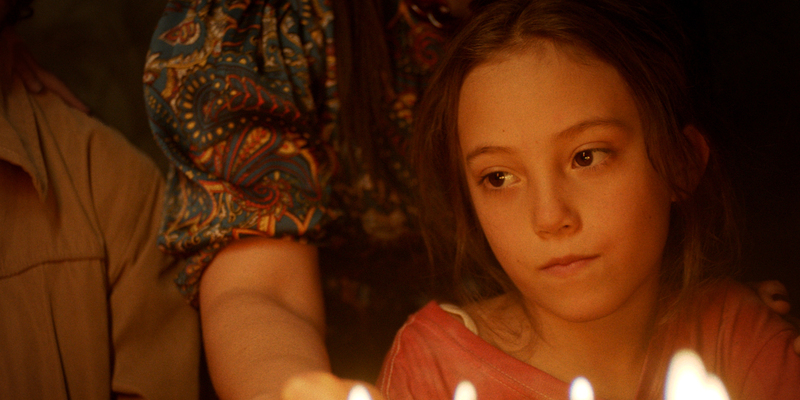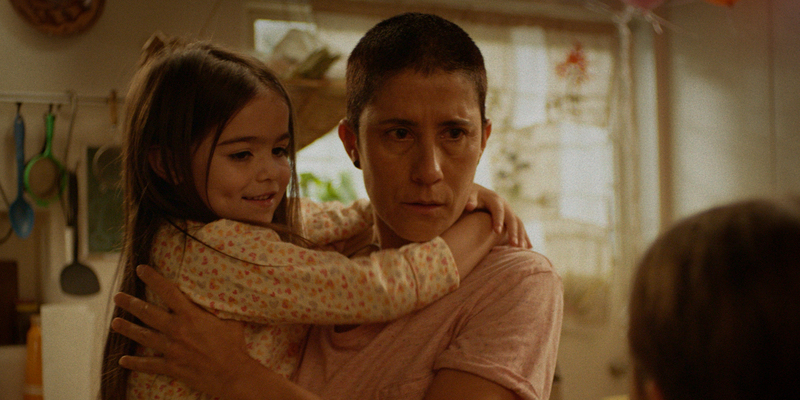
Review by
Eric Hillis
Directed by: Lila Avilés
Starring: Naíma Sentíes, Montserrat Marañon, Marisol Gasé, Saori Gurza, Mateo García Elizondo, Teresita
Sánchez, Alberto Amador

Mexican writer/director Lila Avilés opens her sophomore feature,
Totem, with a light-hearted interaction between a young mother, Lucia (Iazua Larios), and her seven-year-old daughter, Sol (Naíma Sentíes), in what
appears to be a gas station restroom. Then as they drive towards a
bridge, Lucia tells her daughter that if she holds her breath as they
pass under the bridge she can make a wish come true. Sol doesn't wish
for a pony or a new dress or any other frivolous fancy you might expect
from a child of her age. Sol wishes for her daddy not to die.

Sol's father, Tona (Mateo García Elizondo), is in the final
stages of terminal cancer. Falling somewhere between Altman-esque
ensemble and Malickian spirituality, Totem plays out over
the course of what will presumably be Tona's final birthday. An
elaborate party is to be thrown in the home of Tona's bohemian family,
filled with adults and children and cats and dogs and parrots and
goldfish.
For the first half of the film Tona is unseen, resting in his bedroom
where he's aided by a caring nurse, Cruz (Teresita Sánchez, star
of Avilés' debut
The Chambermiad), with whom he's bonded to the point of secretly bequeathing her most
of the paintings he has racked up in his career as an artist. Sol
desperately wants to see her father but various adult relatives try to
keep her busy with preparations for the party. Sol, a precocious child
with a head full of facts about nature, explores the home with the
curiosity of an extra-terrestrial investigating a MidWest farm at 3am,
knocking over trinkets and sipping wine from a bottle she discovers on a
basement shelf.

Meanwhile Tona's family fuss about and bicker over how she could be
cared for. Some are practical and argue for chemo, which Tona has
refused, while others turn to the spiritual, holding meditative sessions
and hiring a woman to rid the home of bad vibes ("I also sell
tupperware," the pseudo-shaman announces as she receives payment).
Tona's elderly father (Alberto Amador), a psychologist who speaks
with the aid of a voicebox, looks on in dismay.
As dusk falls and the party begins, glasses are raised, tributes are
paid and tears are shed. Sol wanders through adult legs like a child
lost in a cornfield. The grown-ups try to protect her but she knows more
than they'd like. When she's finally united with her father it's an
underplayed but nonetheless emotionally overwhelming moment, filmed in
an extended unbroken take.

The performance of young Sentíes is astonishing. She never comes off as
one of those child actors who have had the profession drummed into her
by eager parents. Every choice she makes feels natural and organic, and
while she's probably too young to fully grasp the film she's appearing
in, there's no doubt that she feels Sol's heartbreak. As the camera
lingers on her face in an extended closing shot, we're left with an
inspirational picture of childhood resilience.


